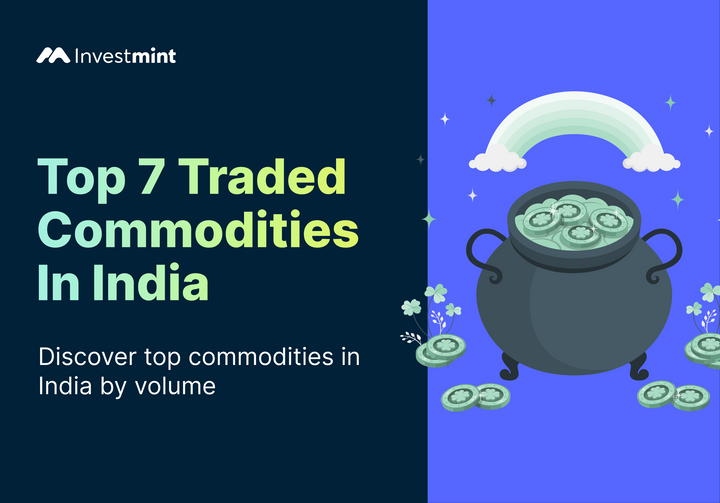What Is Forex Trading? A Guide To Get Started
Forex trading involves buying and selling currencies in the foreign exchange. It is the largest and most liquid financial market in the world.

Introduction
At some point in our lives, we all collect foreign currencies as a hobby. But do you know some people make a living by buying and selling these foreign currencies? And no, they don’t have shops where you can buy these currency notes.
Forex trading is a popular trading opportunity for beginners and experienced traders due to its high liquidity, accessibility, and potential for significant returns. Forex trading, also known as foreign exchange trading, is similar to equity trading, but the only difference is that you buy and sell currencies in the foreign exchange market. Forex trading aims to profit by speculating on the relative values of different currencies.
However, it is important for beginners to understand the basics of forex trading and the risks involved before getting started. This includes learning about currency pairs, market analysis, and trading strategies.
This blog post aims to provide a comprehensive overview of forex trading, covering the fundamentals of the process, the risks and benefits, how to choose a broker and different trading strategies.
What Is Forex Trading?
Forex trading is the buying and selling of currencies in the foreign exchange market, aiming to profit from changes in their relative values. It is done through a broking platform.
Now, if you are wondering, who is a forex trader? A forex trader is an individual or organisation that trades currency pairs on the foreign exchange market. Forex, or foreign exchange, is the decentralised global market where currencies are traded against each other. The forex market is the world's largest and most liquid financial market, with a daily turnover of over $7.5 trillion.
With that said, let’s dive deep into forex trading.
Why Do People Trade Forex?
There are many reasons why people trade forex, including the potential for significant returns, high liquidity, and accessibility. Forex trading can also be used as a tool for hedging against currency risk and as a means of diversifying investment portfolios.
How Does Trading In Foreign Exchange Work?
Primarily, Forex trading involves buying one currency while simultaneously selling another, aiming to profit from the changes in the price of the two currencies. Trading is conducted over the counter through a network of banks and brokers, and it takes place 24 hours a day, 5 days a week.
The key players in the forex market include central banks, commercial banks, institutional investors, and retail traders. Central banks significantly impact the forex market through monetary policies, while commercial banks facilitate transactions and provide liquidity. Institutional investors, such as hedge funds and pension funds, account for a large portion of forex trading volume, and retail traders participate in the market through brokers.
Importance Of Forex Trading
Forex trading allows individuals and businesses to benefit from currency fluctuations. It also allows for diversification of investment portfolios and the ability to hedge against currency risk.
- Forex trading is a critical component of the global economy, facilitating international trade and investment. It enables businesses to convert one currency into another, making it easier to conduct transactions in different countries.
- Forex trading significantly impacts exchange rates, in turn affecting international trade. When a currency appreciates, it can make exports more expensive and imports cheaper, while a depreciating currency can have the opposite effect. This can profoundly impact a country's economy and trade balance.
Advantages And Disadvantages Of Forex Trading
There are numerous advantages to forex trading:
- 24-hour market: The forex market is open 24 hours a day, 5 days a week, which means that traders can access it anytime and anywhere in the world. This flexibility allows traders to adjust their trading schedule to their individual needs and take advantage of trading opportunities in different time zones.
- High liquidity: The forex market is the most liquid financial market in the world, with trillions of dollars traded daily. This high volume of trading activity means buying and selling currencies quickly and at a fair price is generally easy.
- Low costs: Forex trading typically has lower transaction costs than other financial markets, such as stocks and futures. Many forex brokers charge only a small spread (the difference between the bid and ask price) or a commission on trades, making trading more cost-effective.
- Leverage: Forex brokers often offer leverage, which allows traders to control larger positions with smaller amounts of capital. This can potentially lead to higher profits, but it's important to note that leverage can also magnify losses, so traders must use caution when utilising this tool.
- Diverse trading options: The forex market offers a wide range of currency pairs to trade, allowing traders to diversify their portfolios and take advantage of various market conditions. Additionally, some forex brokers offer other financial products, such as commodities, indices, and cryptocurrencies, which can further broaden trading opportunities.
Despite how lucrative forex trading can be, here are some risks you should be aware of:
- Volatility: The forex market is known for its volatility, which can lead to rapid and unpredictable price movements. Various factors, such as changes in economic or political conditions or unexpected news events, can cause these price movements. As a result, traders must be prepared for sudden market movements and have a solid risk management plan in place.
- Leverage: While leverage can amplify profits, it can also magnify losses. Traders who use leverage must know the risks involved and carefully manage their positions to avoid excessive losses.
- Counterparty risk: Forex trading is often conducted through brokers, which means traders are exposed to counterparty risk. This risk refers to the possibility that the broker may not fulfil their obligations, such as executing trades or returning funds to the trader. To mitigate this risk, traders should choose a reputable broker that is regulated by a reputable authority.
- Market risk: Forex traders are exposed to market risk, which refers to the risk of losses due to changes in market conditions. Traders must be aware of the factors that can affect the currency markets, such as economic data releases, central bank decisions, and geopolitical events.
Different Forex Trading Strategies
Forex trading strategies include trend following, breakout, swing trading, position trading, scalping, and range trading. Each strategy has unique features and requires a different approach to trading:
- Trend-following strategies focus on identifying and following market trends.
- Breakout strategies aim to capitalise on price breakouts.
- Swing trading strategies involve holding positions for several days to weeks.
- Position trading strategies may require holding positions for months or longer.
Choosing the right strategy depends on your trading style, risk tolerance, and market outlook. Understanding each strategy's strengths and weaknesses is essential. One should select a strategy that aligns with one's goals and trading personality.
Risks Involved In Forex Trading
Forex trading involves various risks, including market volatility, leverage, counterparty risk, and geopolitical risks. Traders must also consider risks related to technical failures, regulatory changes, and operational risks.
Managing risks in forex trading involves setting stop-loss orders, avoiding excessive leverage, and diversifying your portfolio. Traders should also stay informed about market events and regulation changes to minimise risks.
Effective risk management is essential for success in forex trading. Without proper risk management, traders may face significant losses, leading to insufficient funds for trading activities. By managing risks effectively, traders can protect their capital and achieve long-term profitability.
Conclusion
Forex trading refers to the buying and selling of currencies in the foreign exchange market. The blog post explains why people trade forex, how it works, and who the key players in the market are. It also covers the benefits of forex trading for individuals and businesses, the role of forex trading in the global economy, and the impact of forex trading on exchange rates and international trade.
Additionally, the post discusses the types of forex markets, major currency pairs and their characteristics, factors that influence currency prices, and different forex trading instruments. Finally, it offers guidance on choosing the right instrument for your trading strategy, using technical and fundamental analysis in forex trading, and placing a forex trade.
Want to read more of such interesting articles? Click on the 'subscribe' button and get the next article in your inbox.



